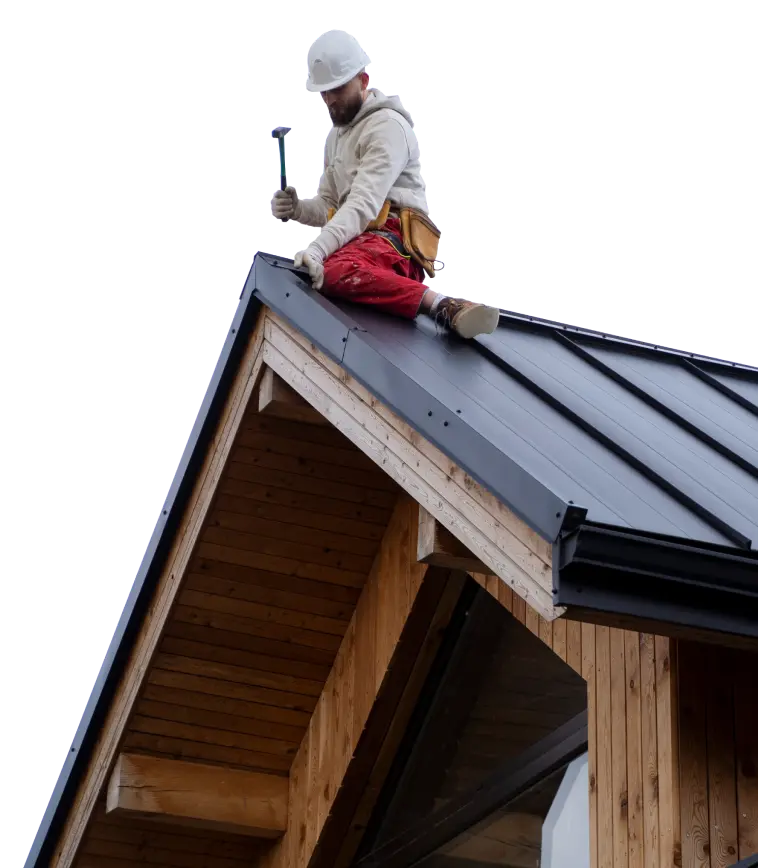
Florida homeowners often contact us with common roofing questions after storms or during sunny months. Getting answers to those roofing questions early can help protect homes from leaks, damage, and unnecessary repairs. We receive roofing questions about storm protection, materials, maintenance needs, and insurance coverage. Answering these roofing questions helps homeowners make smart decisions about their roofs and avoid future headaches.
The Florida climate presents unique challenges to roofing. Hurricanes, heavy rain, strong sun, and high humidity affect roofs differently than in other states. We hear roofing questions about how to choose materials that resist heat, handle wind uplift, and prevent mold growth. Homeowners also ask roofing questions about how to spot early signs of wear before they become expensive problems.
1. How long will my roof last in this climate?
The longevity of a roof depends on the materials used and how well it is maintained. In Florida, asphalt shingles may last 15 to 20 years, while metal or tile roofs can last 30 to 50 years with proper care. That question about lifespan comes up a lot because extreme weather can degrade roofing faster than expected. Regular inspection and timely repair extend roof life and offer more value over time.
2. What roofing materials resist hurricanes and heavy rain?
Many Floridians ask roofing questions about resistance to wind and hail. Metal roofing systems and some architectural shingles with a Class 4 impact rating perform best under high winds and rain. Tile roofs provide durability and heat resistance, but they must be properly installed and maintained to avoid cracking during storms. Our team works with local weather conditions in mind to recommend materials that hold up best over time.
3. How often should I inspect or maintain my roof?
Roofing questions about maintenance frequency come up, especially for homes near the coast. Ideally, homeowners should schedule a professional inspection once a year, and after major storms. Simple checks like looking for loose shingles, clearing debris from gutters, and ensuring flashing around vents and chimneys is intact can help prevent leaks and mold growth before they happen.
4. What about mold and algae in humid areas?
Because Florida is so humid, mold and algae growth are common concerns. Many submit roofing questions about how to prevent stains and deterioration. Installing algae-resistant shingles and cleaning roof surfaces with safe, approved treatments helps reduce visual discoloration and structural damage. Good attic ventilation and maintaining clean gutters also reduce moisture build-up.
5. Will insurance cover storm damage to my roof?
Roofing questions about insurance are common after hurricanes or hailstorms. Coverage often depends on the severity of the damage and whether the roof was in good condition before the incident. Insurance companies may deny claims if they find evidence of wear or deferred maintenance. Claims are more likely to be approved if photos, inspection records, and clear descriptions of storm events are provided.
6. Should I repair or replace my roof after minor damage?
When light damage occurs after wind or falling debris, homeowners often ask roofing questions about whether repair is enough. In many cases, patching a few shingles and sealing flashing can restore protection. But if shingles are lifting across a large area or flashing is failing, it may make more sense to replace the entire roof to avoid future leaks. Cost, age, and location all factor into that decision.
7. What signs indicate a roof leak or structural issue?
Roofing questions often focus on identifying early warning signs such as water stains on ceilings, dark spots or mold in the attic, cracked or curled shingles, and granule loss in gutters. Soft or sagging roof sections and drafty attic spaces also suggest hidden damage. Early detection helps avoid interior damage and preserves the roof structure.
8. How can I make my roof more energy efficient?
Homeowners sometimes ask roofing questions about cooling costs. Lighter-colored roofing materials and reflective coatings can reduce heat absorption and lower indoor temperatures. Good attic insulation and proper ventilation also reduce air conditioning load. Investing in these upgrades helps manage energy bills and extends shingle life.
Having clear and accurate responses to roofing questions allows Florida homeowners to act with confidence. Keeping a roof in good condition protects the home’s structure and interior. Answering roofing questions up front helps homeowners plan budgets, schedule services before major storms, and select materials that match their needs and neighborhood requirements.
At E.W. MacDowell Roofing, we provide free consultations where we answer roofing questions honestly based on your roof’s age, material, exposure, and damage history. Our goal is to prevent surprises by giving you a plan you can rely on.
For homeowners seeking answers to roofing questions, here are practical steps to follow:
Clear records and transparency help with both maintenance and potential insurance claims. These proactive measures reduce risks and add value to your property.
Reach Out to Us to Get Started on Your Upcoming Roofing Project
E.W. MacDowell Inc. is here to be your expert roofing partner, helping you make the best decision for your home or business.
